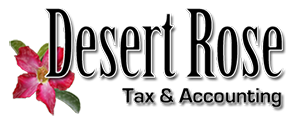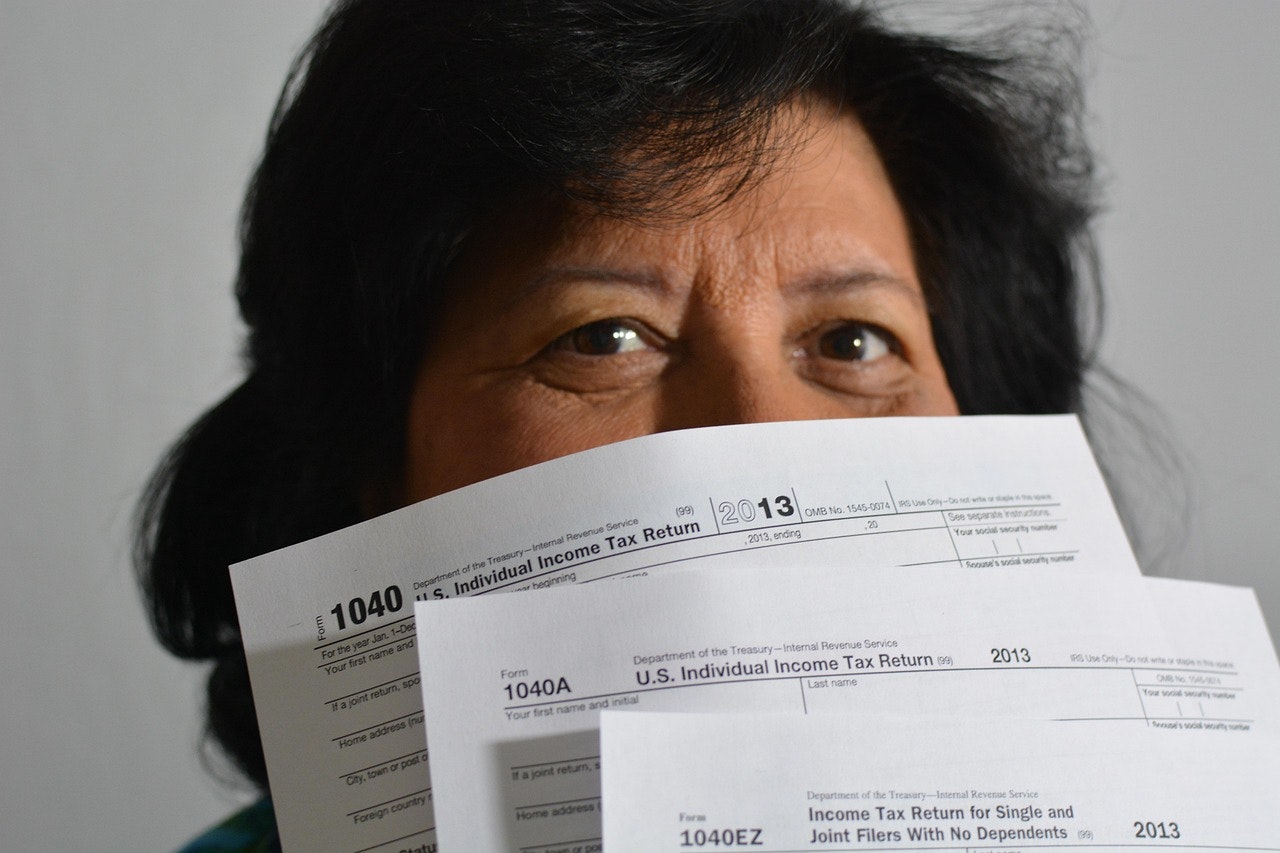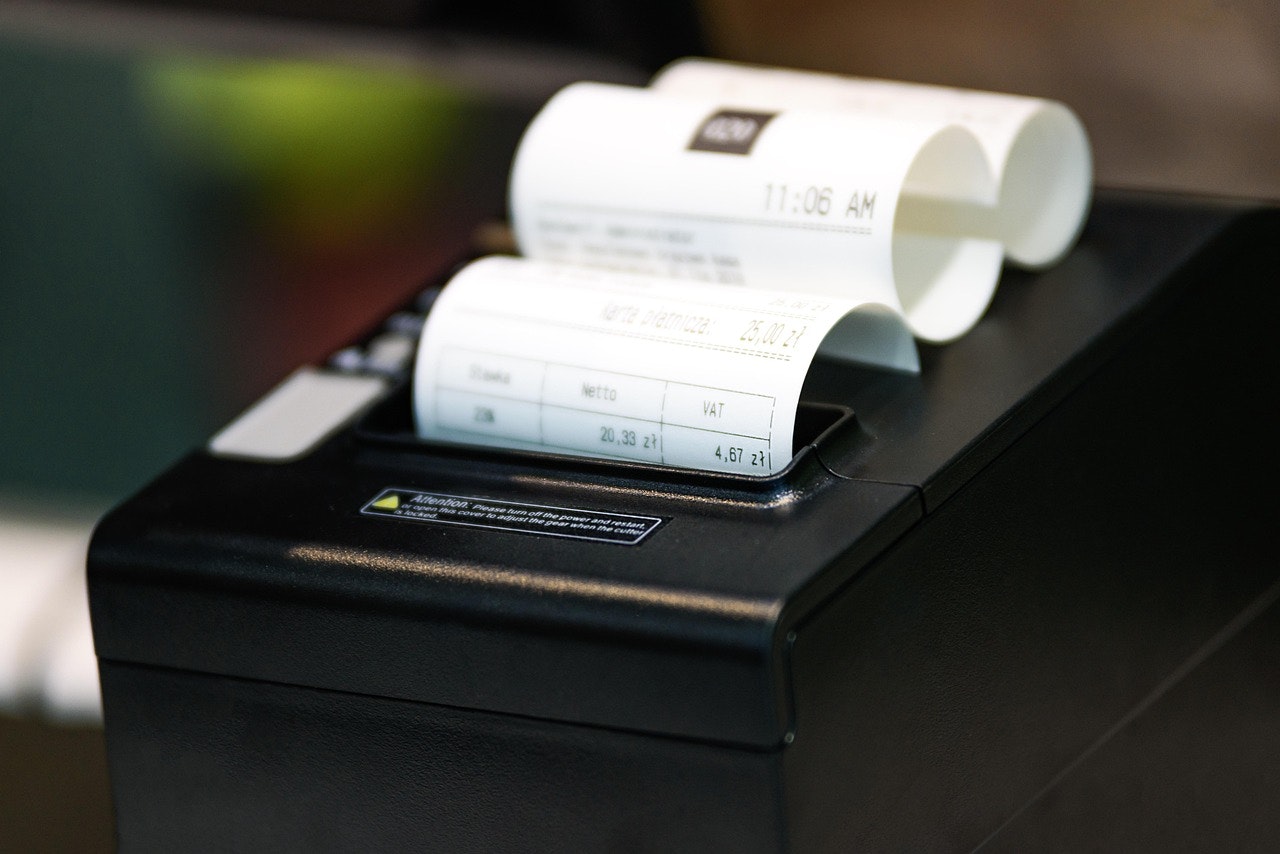The Truth About Real Estate Tax Benefits: What Every Investor Needs to Know
"Should I buy real estate for the tax write-off?" It's one of the most common questions we hear at Desert Rose Tax & Accounting, and the answer is more nuanced than most people expect. While real estate can offer powerful tax benefits, understanding the rules—and their limitations—is crucial before making any investment decision.
Let's cut through the confusion and explore what real estate can and can't do for your tax situation, including some advanced strategies that might surprise you.
The Reality Check: Real Estate Is a Business, Not a Tax Shelter
Before diving into tax strategies, let's address the elephant in the room: owning rental property is running a business, whether you have one property or twenty. The term "passive income" is perhaps the most misleading phrase in real estate investing.
Here's the hard truth: If you're not willing to put in the time to learn the business, manage it properly, and treat it with the same seriousness you'd give any other business venture, stop reading now. Real estate is not for you. The tax benefits we're about to discuss won't save a poorly run rental business any more than tax deductions save a failing restaurant. You need to be prepared to become a student of real estate, property management, tenant relations, and local market conditions—or be prepared to lose money.
What "Passive" Really Means
When we call rental income "passive" for tax purposes, we're using IRS terminology—not describing your actual involvement. Here's what property ownership really entails:
The "Passive" Rental Reality:
- 2 AM calls about broken water heaters
- Coordinating contractors for repairs (who may not show up)
- Chasing rent payments and serving eviction notices
- Dealing with property damage between tenants
- Managing tenant complaints and disputes
- Maintaining property insurance and staying compliant with changing regulations
- Handling city inspections and code violations
- Bookkeeping and tax filing requirements
Even with property management (which costs 8-10% of rent), you're still running a business—you're just outsourcing some operations.
Short-Term Rentals: Even Less Passive
If you're considering the short-term rental strategy for tax benefits, understand that Airbnb properties are essentially hospitality businesses:
- Guest communications at all hours
- Coordinating cleanings between stays (sometimes daily)
- Managing reviews and ratings that determine your success
- Dealing with party damage and house rule violations
- Competing with hotels and other rentals on pricing and amenities
- Furnishing and constantly replacing items
- Higher insurance costs and potential HOA violations
Many investors burn out on short-term rentals within the first year, regardless of tax benefits.
The True Costs Often Ignored
When calculating those attractive tax benefits, many forget about:
- Vacancy periods (typically 5-10% for long-term, higher for short-term)
- Maintenance and repairs (budget 1% of property value annually)
- Capital improvements (roof, HVAC, appliances)
- Property management fees
- Higher insurance rates for rentals
- Legal fees for evictions
- Time value of your own labor
- Opportunity cost of tied-up capital
When Tax Benefits Become Tax Disasters
We've seen too many cases where tax-motivated purchases become financial nightmares:
- Buying in declining areas because the property was "cheap"
- Over-leveraging to maximize depreciation deductions
- Ignoring cash flow because "the tax benefits make up for it"
- Purchasing properties sight unseen for tax losses
- Not budgeting for major repairs and improvements
Remember: The IRS won't reimburse you for a bad investment just because you got some tax deductions along the way.
The Successful Investor's Mindset
The clients who thrive in real estate understand:
- Tax benefits enhance good investments; they don't create them
- Every property should make economic sense without tax considerations
- Real estate is a long-term wealth-building strategy, not a quick tax fix
- You need adequate cash reserves for emergencies
- Location, condition, and cash flow matter more than depreciation schedules
If you're not prepared to run a business, handle stress, and tie up significant capital for years, the tax benefits won't matter—you'll lose more in operations than you'll save in taxes.
The Fundamental Misconception: You Need a Loss to Get a Write-Off
Here's what many would-be investors don't understand: to get a tax deduction that reduces your other income, your property generally needs to show a loss on paper. But wait—isn't the goal of investing to make money, not lose it?
This is where real estate gets interesting. Through depreciation and other tax strategies, a profitable rental property can show a "paper loss" for tax purposes while actually putting cash in your pocket. However, whether you can use that loss to offset your W-2 income or other earnings depends on several critical factors.
Understanding Passive Activity Loss Rules
The IRS classifies rental real estate as a "passive activity" for most investors, and passive losses can generally only offset passive income—not your salary, business income, or investment gains. This is the wall many investors hit when they expect their rental property losses to reduce their tax bill.
Important: Your losses don't disappear! When you can't use passive losses in the current year, they carry forward indefinitely as "suspended passive losses." These suspended losses can be used in future years when you have passive income to offset, or they're fully released (and can offset any type of income) when you sell the property. Think of it as building up a tax benefit bank account that you'll eventually cash in.
The $25,000 Special Allowance Exception
There is some relief for middle-income earners. If you "actively participate" in your rental (making management decisions, approving tenants, etc.) and your modified adjusted gross income (MAGI) is below certain thresholds, you can deduct up to $25,000 in rental losses against ordinary income.
The income limits:
- Full $25,000 allowance: MAGI under $100,000
- Partial allowance: MAGI $100,000-$150,000 (phases out by $1 for every $2 over $100,000)
- No allowance: MAGI over $150,000
For many high earners seeking tax relief, this exception provides little to no benefit.
Real Estate Professional Status: The Game Changer
If you or your spouse qualify as a "real estate professional" for tax purposes, all rental activities become non-passive, allowing unlimited loss deductions against any income type. But the requirements are stringent:
- More than 50% of your working hours must be in real estate trades or businesses
- You must work more than 750 hours per year in real estate
- You must materially participate in your rental activities
- You should elect to aggregate all rental properties as one activity (in most cases)
Important clarification: Even though real estate professional status makes your rental income non-passive for loss deduction purposes, rental income generally remains exempt from self-employment tax. This is true even when you materially participate. The exception would be if you're providing substantial services beyond typical rental activities (like daily maid service, meals, etc.), which would reclassify the income as business income subject to SE tax.
Warning: The IRS heavily scrutinizes real estate professional claims. Detailed time logs are essential, and this status is nearly impossible to achieve with a full-time W-2 job.
The Depreciation Advantage: Creating Paper Losses
Depreciation is the real estate investor's best friend—it's a non-cash expense that reduces taxable income without affecting cash flow. Here's how it works:
Standard Depreciation
- Residential rental property: Depreciate over 27.5 years
- Commercial property: Depreciate over 39 years
- Land: Not depreciable
Example: You buy a $400,000 rental property ($320,000 building, $80,000 land). Your annual depreciation is $11,636 ($320,000 ÷ 27.5 years). This paper expense might turn a cash-flowing property into a tax loss.
Cost Segregation: Accelerating the Benefits
Cost segregation is where things get powerful. Instead of depreciating the entire building over 27.5 or 39 years, a cost segregation study identifies components that can be depreciated faster:
- 5-year property: Appliances, carpeting, decorative elements, furniture and furnishings (especially valuable for short-term rentals), window treatments, decorative lighting
- 7-year property: Office furniture, desks, certain fixtures
- 15-year property: Land improvements, parking lots, landscaping, driveways, fencing, outdoor lighting
- Note on mechanical systems: The treatment of HVAC and mechanical systems varies. While standard building-wide HVAC often remains 27.5-year property, cost segregation studies may identify certain components for faster depreciation—specialized cooling for specific areas, removable units, controls and electrical connections, or systems serving a specific business purpose rather than general building comfort. Water heaters and plumbing typically remain structural components. This is an area where cost segregation professionals can add significant value by identifying qualifying components.
- Bonus depreciation update: Thanks to the One Big Beautiful Bill Act (OBBBA) signed July 4, 2025, we're back to 100% bonus depreciation permanently for property acquired and placed in service after January 19, 2025! This is a game-changer after the rate had dropped to just 40% earlier in 2025.
Real-world impact: A cost segregation study on a $500,000 property might identify $150,000 in 5, 7, and 15-year property. With the reinstated 100% bonus depreciation, you could deduct the entire $150,000 in year one—creating an even more massive paper loss than before.
Critical timing note: To qualify for 100% bonus depreciation, you must both acquire AND place the property in service after January 19, 2025. Properties under contract before this date only qualify for the old 40% rate.
Section 179: The Overlooked Opportunity
Section 179 allows immediate expensing of certain property used in business. The OBBBA dramatically increased these limits for 2025:
- New deduction limit: $2.5 million (up from $1.25 million)
- Phase-out threshold: $4 million (up from $3.13 million)
For real estate investors, Section 179 can apply to:
- Personal property used in rentals (furniture, appliances, equipment)
- Components identified in cost segregation studies
- Certain improvements to non-residential property
The key is that the property must be used in an active trade or business, which brings us to an interesting strategy...
The Short-Term Rental Strategy: Converting Passive to Active
Here's where savvy investors are finding opportunity: short-term rentals (like Airbnb) can potentially be classified as active businesses rather than passive rentals if they meet certain criteria.
The 7-Day or 30-Day Rules
Your rental is NOT considered a passive rental activity if:
- Average guest stay is 7 days or less (think Airbnb, VRBO)
- Average stay is 30 days or less AND you provide substantial services (daily cleaning, meals, concierge)
Material Participation Requirements
Even with short-term rentals, you must materially participate to deduct losses against ordinary income. The IRS has seven tests; meeting any one qualifies:
- 500+ hours of participation annually
- Substantially all participation in the activity
- 100+ hours and no one else participates more
- (Plus four other technical tests)
The First-Year Strategy
Here's a powerful approach we see sophisticated investors use:
Year 1: Short-Term Rental Launch
- Purchase property after January 19, 2025, and furnish it completely ($30,000-50,000 in furniture/fixtures)
- Operate as short-term rental with material participation
- Conduct cost segregation study
- Take 100% bonus depreciation on identified components (thanks to OBBBA!)
- Fully depreciate furniture and fixtures under Section 179 or bonus depreciation
- Create massive first-year loss to offset other income
Example with 100% Bonus Depreciation (2025):
- $500,000 property purchase
- $40,000 in furnishings (fully deductible)
- $120,000 identified in cost segregation
- $120,000 bonus depreciation (100% of identified components!)
- Total first-year depreciation: $160,000+
- Plus operating expenses, mortgage interest, etc.
This could create a $150,000+ paper loss while the property actually cash flows positively—significantly more powerful than the 40% bonus depreciation available earlier in 2025.
Years 2+: Conversion Options After capturing the big first-year benefits, you can:
- Continue as short-term rental
- Convert to long-term rental (future losses become passive)
- Sell and do a 1031 exchange
- Rinse and repeat with a new property
The Annual Property Purchase Strategy
Some aggressive investors purchase a new short-term rental property each year, repeating the first-year benefit cycle:
Year-by-year approach:
- Year 1: Buy Property A, massive depreciation, offset W-2 income
- Year 2: Convert Property A to long-term rental, buy Property B for new deductions
- Year 3: Properties A & B are long-term, buy Property C for deductions
- Continue building portfolio while harvesting tax benefits
Considerations for this strategy:
- Requires significant capital or financing ability
- Must maintain material participation in new properties
- Creates property management complexity
- Eventually, you run out of other income to offset
- Builds substantial real estate wealth over time
Other Key Tax Benefits of Real Estate
- The Section 199A/QBI Deduction: An Extra 20% Off: The Qualified Business Income (QBI) deduction under Section 199A can provide an additional 20% deduction on rental income, but qualifying requires careful planning.
Rental properties can qualify in two ways:
Option 1: Meet the "Trade or Business" Standard
- Your rental activity must rise to the level of a trade or business
- Short-term rentals almost always qualify
- Long-term rentals need significant activity and management
Option 2: Use the Safe Harbor (Revenue Procedure 2019-38) For long-term rentals, the IRS provides a safe harbor if you:
- Keep separate books and records for each property
- Perform 250+ hours of rental services annually (per property)
- Maintain contemporaneous records of all services performed
- Attach a statement to your tax return
Qualifying rental services include:
- Advertising and tenant screening
- Property maintenance and repairs
- Collection activities and property management
- Supervising contractors and employees
What doesn't count:
- Investment activities (reviewing financials, planning)
- Travel time (unless performing services at property)
- Time spent on improvements (capital expenditures)
The benefit: If your rental qualifies and your taxable income is below $383,900 (married filing jointly) or $191,950 (single) for 2025, you get the full 20% deduction. Above these thresholds, limitations may apply.
Pro tip: Short-term rentals that qualify as businesses automatically get QBI treatment, adding another advantage to the Airbnb strategy.
- Mortgage Interest Deduction
All mortgage interest on investment property is deductible, with no caps like primary residences. On a $400,000 loan at 7%, that's $28,000 in first-year deductions.
- Operating Expense Deductions
Everything necessary for operating your rental is deductible:
- Property management fees
- Repairs and maintenance
- Insurance
- Property taxes
- Utilities (if you pay them)
- Professional services (legal, accounting)
- Travel to manage properties
- Home office for managing rentals
- Capital Gains Benefits
- Like-kind exchanges (1031) defer gains indefinitely
- Long-term capital gains rates (15-20% plus 3.8% NIIT) vs. ordinary income rates (up to 37%)
- Step-up in basis at death eliminates gains for heirs
- Opportunity Zone investments can eliminate gains entirely
- Tax Credits
Certain real estate investments qualify for valuable credits:
- Historic rehabilitation credit (20% of qualified expenses)
- Low-income housing credit
- Energy efficiency credits
- Opportunity Zone benefits
Critical Record-Keeping Requirements
The IRS doesn't take your word for it—documentation is everything in real estate tax benefits. Here's what you must track:
For Material Participation (Short-Term Rentals)
Required documentation:
- Contemporaneous daily logs showing dates, times, and activities
- Calendar entries with specific tasks (not just "property work")
- Email trails showing active involvement
- Receipts and invoices showing your direct involvement
- Guest communications and booking management records
Pro tip: Use apps like Toggl, Quickbooks Time, or even a detailed spreadsheet. "Contemporaneous" means recorded at or near the time—not reconstructed at year-end.
For Real Estate Professional Status
The IRS expects:
- Time logs for EVERY real estate activity (not just rentals)
- Proof you worked 750+ hours in real estate
- Documentation showing more than 50% of work time in real estate
- Separate logs for each property unless you've elected to aggregate
- Third-party verification when possible (emails, invoices, calendars)
Common audit failure: Vague entries like "property management - 4 hours." Instead: "Property A: Met contractor for roof repair bid, reviewed and approved tenant application, conducted move-out inspection - 4 hours"
For All Rental Properties
Essential records to maintain:
- Income: All rent receipts, security deposits, advance rent
- Expenses: Every receipt, categorized and tied to specific properties
- Mileage: Detailed log with date, purpose, starting/ending locations
- Home Office: Square footage calculations, exclusive use documentation
- Improvements vs. Repairs: Clear documentation of nature and purpose
- Banking: Separate accounts for each property (or meticulous records if combined)
Digital Tools That Make Life Easier
- Property Management: Stessa, Rentberry, Buildium (automatically track income/expenses)
- Mileage: MileIQ, Everlance (GPS-based automatic tracking)
- Receipt Scanning: Expensify, Receipt Bank
- Time Tracking: Toggl, RescueTime, Clockify
- All-in-One: Quickbooks, FreshBooks (with rental property setup)
The Audit-Proof Filing System
Organize documents by:
- Year
- Property
- Category (income, repairs, improvements, etc.)
Keep everything for at least 7 years (longer for properties you still own). Digital copies are acceptable, but ensure they're backed up and clearly legible.
Red flag to avoid: Rounded numbers everywhere ($500, $1,000) suggest estimated rather than actual expenses. Keep exact amounts from receipts.
When the IRS Comes Knocking
If you can't substantiate your deductions:
- Material participation hours get denied = passive losses
- Real estate professional status rejected = all losses limited
- Expenses without receipts = deductions disallowed
- Improvements claimed as repairs = depreciation required plus penalties
The golden rule: If you can't prove it, you can't deduct it. The burden of proof is always on you, not the IRS.
The Downsides and Limitations
Let's be realistic about the challenges:
Depreciation Recapture
When you sell, all that depreciation gets "recaptured" at 25% tax rate—higher than capital gains rates. You'll eventually pay the piper unless you 1031 exchange or hold until death.
Alternative Minimum Tax (AMT)
Accelerated depreciation can trigger AMT for high earners, potentially eliminating benefits. Always model AMT impact before implementing aggressive strategies.
Passive Loss Carryforward
Unused passive losses carry forward indefinitely but can only offset future passive income or be released upon sale. While you might wait years to benefit, these losses aren't lost—they're building up value for when you:
- Generate passive income from other rentals
- Sell the property (all suspended losses release and can offset any income type)
- Convert other investments to passive income generators
Many investors are pleasantly surprised when selling a property after years of suspended losses—those accumulated losses can significantly reduce or eliminate the tax on their sale proceeds.
Complexity and Compliance
- Cost segregation studies cost $5,000-15,000+
- Detailed recordkeeping is essential
- Material participation must be documented
- State tax rules may differ significantly
- IRS scrutiny is high for aggressive positions
Economic Reality Check
Tax benefits should enhance good investments, not justify bad ones. A property losing money operationally is still a bad investment, regardless of tax benefits.
Making the Decision: Is Real Estate Right for Your Tax Situation?
Consider real estate for tax benefits if you:
- Have high W-2 or business income to offset
- Can qualify as a real estate professional OR
- Are willing to operate short-term rentals with material participation
- Have capital for down payments and improvements
- Understand and accept the complexity
- View tax benefits as icing, not the cake
Skip real estate tax strategies if you:
- Are only motivated by tax savings
- Can't afford the property without tax benefits
- Won't maintain detailed records
- Don't have time for material participation
- Are already in a low tax bracket
Common Scenarios and Solutions
The High-Earning W-2 Employee
Situation: $300,000 salary, seeking tax relief Solution: Short-term rental with cost segregation and material participation, or spouse qualifies as real estate professional
The Business Owner
Situation: $500,000 business income, variable year-to-year Solution: Multiple strategies available—short-term rentals, real estate professional status, or strategic timing of depreciation
The Passive Investor
Situation: Wants rental income but minimal involvement Solution: Accept passive loss limitations, focus on cash flow and appreciation, use losses to offset future passive income or gains at sale
The Retiree
Situation: Lower income, more time available Solution: Might benefit from $25,000 special allowance, easier to achieve real estate professional status
Advanced Considerations
Stacking Strategies
Combine multiple approaches for maximum benefit:
- Cost segregation + short-term rental + Section 179
- Real estate professional status + multiple properties
- 1031 exchanges + stepped-up basis planning
Entity Structure Matters
- Single-member LLCs are disregarded for tax purposes
- Partnerships allow special allocations
- S-Corps might limit certain benefits
- Consider series LLCs for multiple properties
State Tax Implications
- Some states don't conform to federal depreciation rules
- State passive loss rules may differ
- Consider investing in no-income-tax states
The Bottom Line: Strategy, Not Silver Bullet
Real estate can provide powerful tax benefits, but it's not a magic solution for everyone. The most successful real estate investors we work with view tax benefits as one component of a comprehensive investment strategy, not the primary driver.
The key is understanding which strategies apply to your specific situation and implementing them correctly. The difference between doing it right and doing it wrong can be tens of thousands of dollars in tax savings—or penalties.
Take Action: Plan Your Real Estate Tax Strategy
The tax code rewards those who understand and follow its rules. Whether you're considering your first rental property or looking to optimize an existing portfolio, professional guidance can make the difference between maximizing benefits and making costly mistakes.
At Desert Rose Tax & Accounting, we specialize in real estate tax strategies. We'll help you:
- Determine if real estate investing makes sense for your tax situation
- Structure entities for maximum tax efficiency
- Coordinate cost segregation studies
- Document material participation and real estate professional status
- Plan exit strategies to minimize tax impact
- Navigate complex compliance requirements
Don't let tax opportunities pass you by, but don't let tax tales lead you astray either. Visit www.desertrosetax.com to schedule a consultation and discover how real estate might fit into your tax planning strategy.
Edward Ethington, CPA, CFP®, MBA
Desert Rose Tax & Accounting
Your Strategic Tax Planning Partner
www.desertrosetax.com
This blog provides general information about real estate tax strategies and should not be construed as personal tax advice. Tax laws are complex and change frequently. Real estate investment carries risks beyond tax considerations. Please consult with qualified tax and investment professionals at Desert Rose Tax & Accounting before making any investment decisions.























